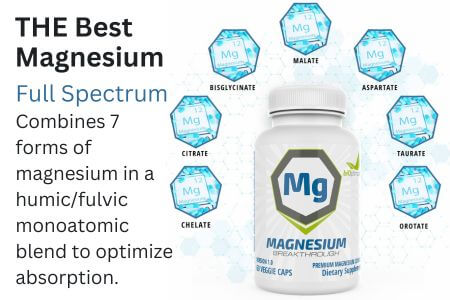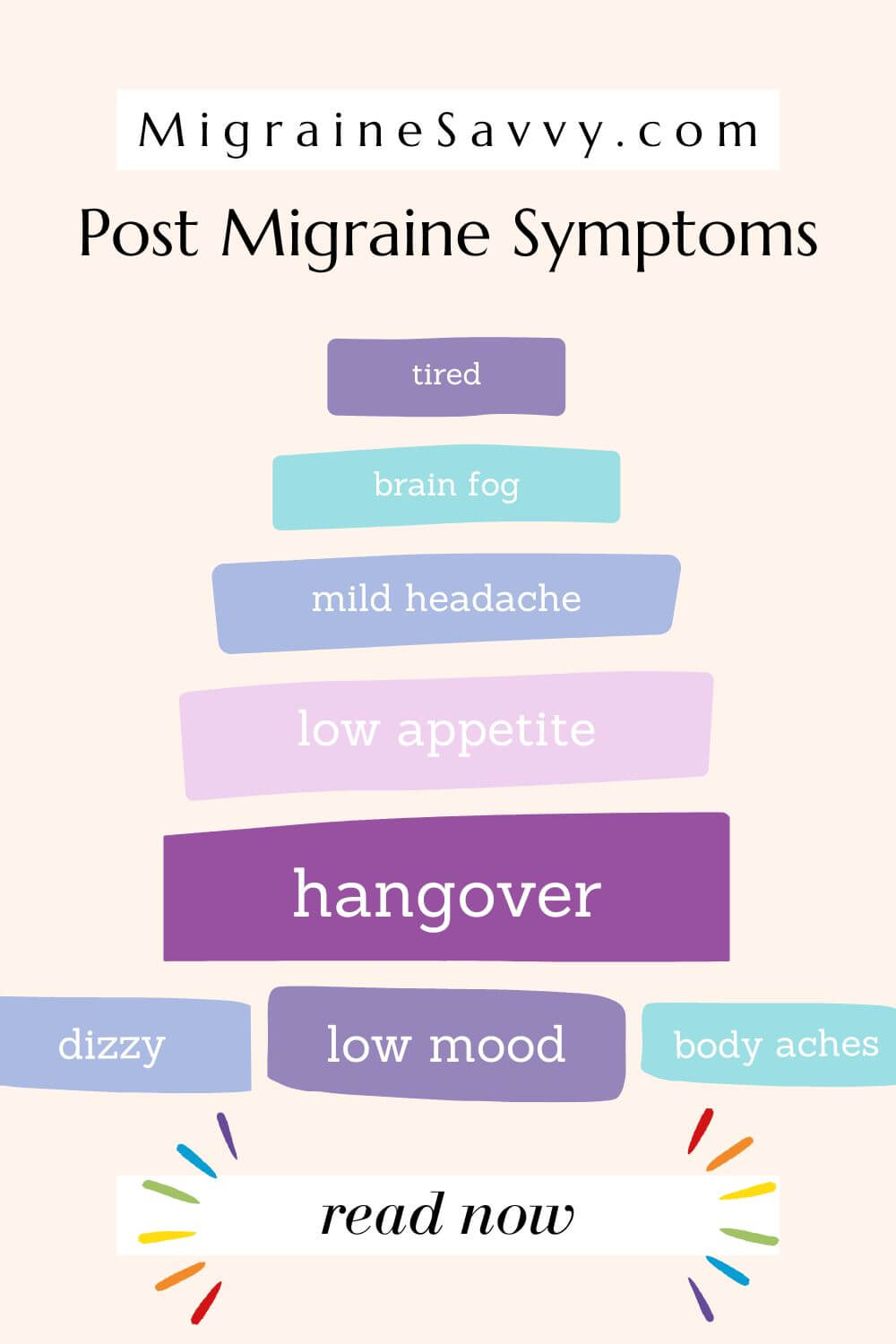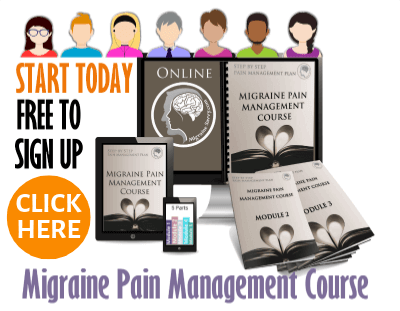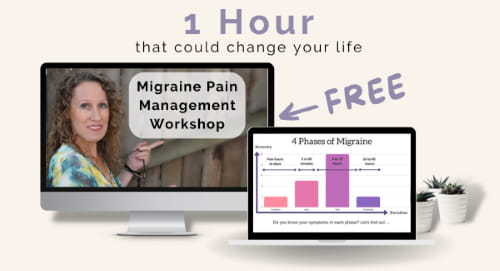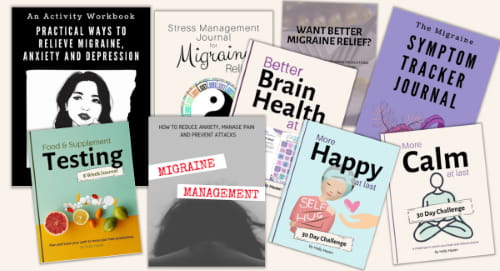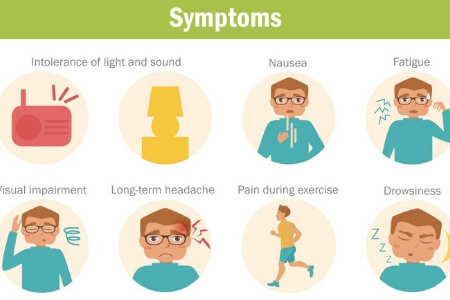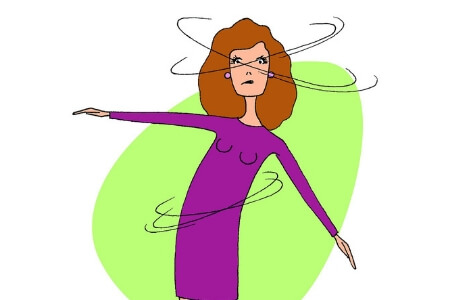- Home
- Migraine Symptoms
- Post Migraine Symptoms
Post Migraine Symptoms: What Happens After an Attack
Post migraine symptoms are more than just a lingering headache - they represent a complex neurological recovery process that many of us misunderstand. A migraine unfolds in multiple stages, with the postdrome phase being a critical yet often overlooked period of healing and repair.
This prodrome phase, the migraine hangover, is part of the whole chain of biological events that happens during an attack. The symptoms can often linger for a day or two while your body and brain is attempting to recover from the neurological thunderstorm.
Brain fog; feeling hungover or beaten up; low energy; tired and depressed. These are just a few symptoms you might be experiencing after your migraine attack.
Keep reading to discover what truly happens to your body and mind after an attack and learn some practical strategies to help make this challenging recovery period easier.
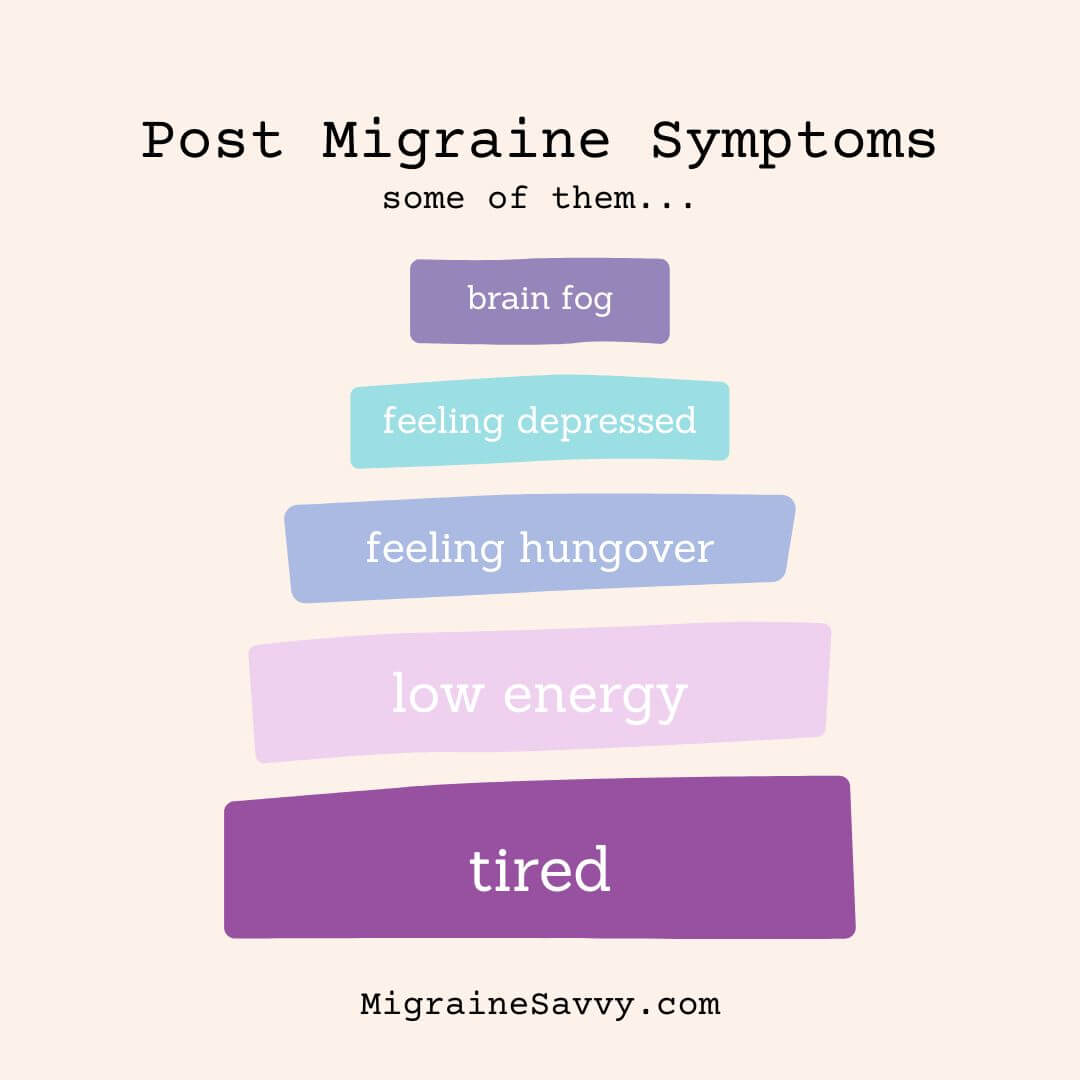 Which ones do you get?
Which ones do you get?The Neurological Science Behind Post Migraine Symptoms
Understanding the Migraine Cascade
Migraines are fundamentally a neurological disorder characterized by a complex chemical cascade in the brain:
- Serotonin Fluctuation: A significant drop in serotonin levels triggers a chain reaction
- Neuropeptide Release: This triggers the release of neuropeptides
- Neurological Disruption: Nerves and blood vessels become hypersensitive and reactive
A migraine is caused by a chemical imbalance occurring in the brain.
A drop in serotonin triggers the release of neuropeptides, which in turn causes the nerves and blood vessels in the brain to become over excited and reactive.
This means you might feel the results of these changes before the pain phase part of the migraine sets in (migraine aura) and continue to feel them after the worst of the migraine has passed.
That's common. Sadly.
Now... how long does this hangover part last?
What Happens During the Postdrome Phase?
The postdrome phase is essentially your brain's recovery period, often described as a "migraine hangover". This stage can last 24-48 hours and is characterized by a complex array of symptoms that extend beyond typical headache recovery.
The postdrome or post migraine stage often lingers for up to a couple of days while your brain is attempting to recover from the neurological disturbance.
You can read about all the stages here >> The 4 Phases of a Migraine Attack.
My #1 Choice in Magnesium Supplementation
Comprehensive List of Post Migraine Symptoms
The symptoms that occur postdrome can include:
Physical Symptoms
- Fatigue and Low Energy: Profound exhaustion that goes beyond normal tiredness
- Muscle Weakness: Noticeable reduction in physical strength and stamina
- Body Aches: Generalized muscle and joint discomfort
- Mild Residual Headache: Lingering head pain, though less intense than during the migraine
- Dizziness: Reduced balance and spatial awareness
- Reduced Appetite: Potential metabolic disruption following the migraine attack
Cognitive and Emotional Symptoms
Cognitive Impairment (Brain Fog): Difficulty concentrating, reduced mental clarity
Mood Fluctuations:
- Low mood or mild depression
- Occasional euphoria or emotional volatility
Reduced Cognitive Performance:
- Slower processing speed
- Decreased problem-solving capabilities
- Temporary memory challenges
These post migraine symptoms sound gentler than the intense pain phase, but they can be just as debilitating.
If you feel dull and beaten up for days after a long attack... I have some more tips for you so keep reading.

Advanced Management Strategies for Post Migraine Recovery
Immediate Post-Migraine Care Protocol
Medical Interventions
1. Pharmaceutical Approaches
- Consult with healthcare providers about targeted postdrome treatments
- Consider low-dose aspirin (900 mg) with metoclopramide (10 mg)
- Explore emerging CGRP (Calcitonin Gene-Related Peptide) medications
Consult with your doctor to consider taking “formulations of aspirin 900 mg together with 10 mg of the antiemetic metoclopramide are better than placebo at reducing symptoms of nausea and vomiting” if you still experience these as symptoms after the pain phase has ended. [1]
2. Natural Remedies
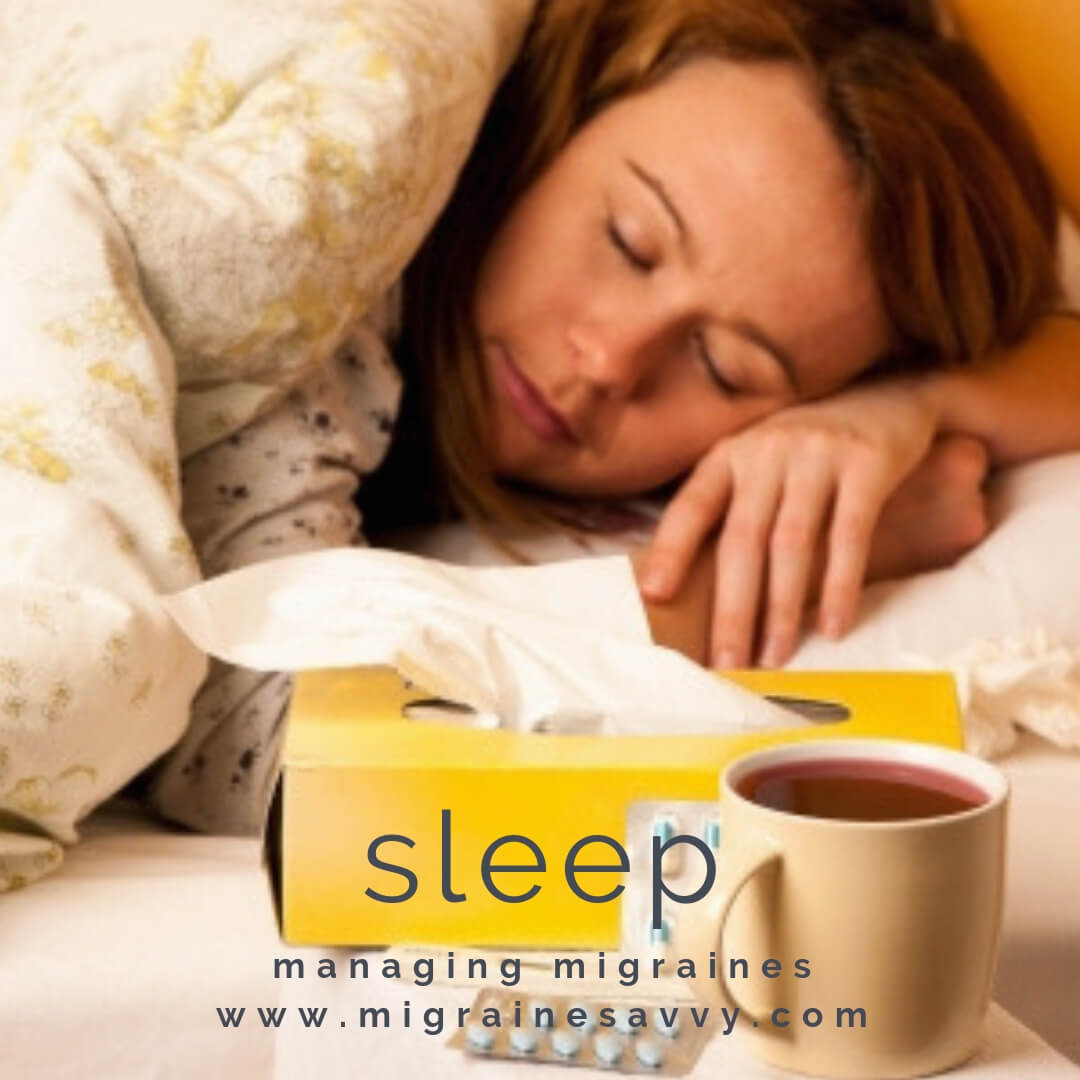 Sleeping Can Help Relieve Symptoms
Sleeping Can Help Relieve SymptomsRest and Recovery
- Prioritize rest in a dark, quiet environment
- Practice gentle recovery techniques
- Maintain consistent sleep patterns
Nutritional and Hydration Strategies
Rehydration: Crucial for neurological and metabolic recovery
Nutrient-Dense Foods:
- Easily digestible nutrients
Eat light foods like soups to rehydrate yourself. To read about proper hydration click here.
Instead of a protein shake, I make a high protein meal and puree it into a soup. Here's my favorite high protein migraine soup recipe if you want to experiment with it.
Stews and casseroles are also easier to digest.
Stress Management and Trigger Avoidance
Stress Reduction Techniques:
- Deep breathing exercises
Trigger Avoidance:
- Avoid known personal migraine triggers
- Create a calm, low-stimulus environment

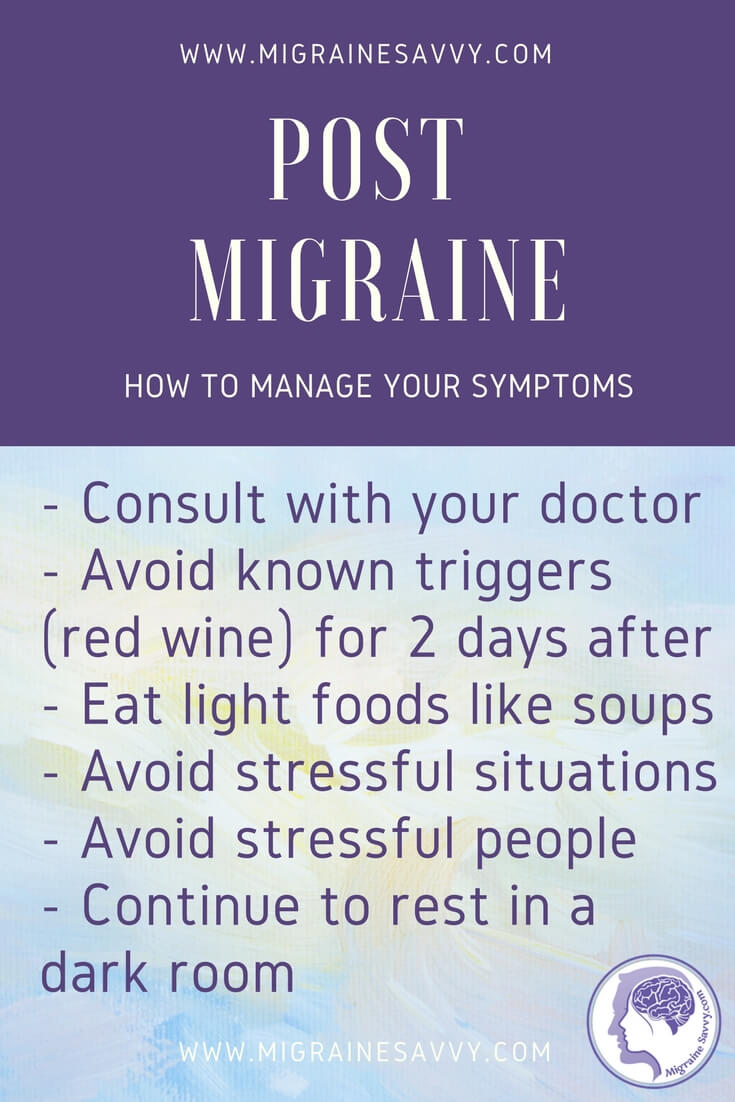 Post Migraine Symptoms Recovery Strategies. How to take care of yourself even after the migraine attack has stopped.
Post Migraine Symptoms Recovery Strategies. How to take care of yourself even after the migraine attack has stopped.Long-Term Management and Prevention
Tracking and Understanding Your Migraine Patterns
- Maintain a detailed migraine and symptom journal
- Identify individual triggers and recovery patterns
- Work closely with healthcare professionals
Holistic Approaches
When to Seek Professional Help
Red Flags Requiring Immediate Medical Attention
- Persistent or worsening symptoms
- Increased frequency of migraines
- Significant impact on daily functioning
- Development of new or unusual symptoms
If you can abort your migraine faster right from the start, you might also experience less post hangover symptoms.
FAQ on Post Migraine Symptoms (Postdrome)
Click on the arrow to see the answer.
1. What causes postdrome symptoms?
1. What causes postdrome symptoms?
Answer: Postdrome symptoms are part of the migraine cycle and stem from the same factors that trigger the migraine itself. Neurovascular changes in the brain, imbalances in neurotransmitters like serotonin, and the lingering effects of dehydration, stress, or fatigue contribute to postdrome symptoms. While the exact mechanisms remain under study, it's clear that postdrome is an integral part of the migraine attack, not a separate condition.
2. Is there a cure for migraine hangovers?
2. Is there a cure for migraine hangovers?
Answer: No. There is currently no cure for postdrome symptoms, as they are a natural part of the migraine cycle. However, management strategies like staying hydrated, getting plenty of rest, and practicing mindfulness can help reduce the severity and duration of these symptoms. Preventive medications that reduce migraine frequency might also lower the occurrence of postdrome phases.
3. How can I prevent postdrome symptoms?
3. How can I prevent postdrome symptoms?
Answer: Although preventing the postdrome entirely may not be possible, you can reduce its likelihood by managing migraine triggers effectively. Strategies include:
- Maintaining regular sleep patterns and stress reduction techniques.
- Avoiding known migraine triggers, such as specific foods or sensory stimuli.
- Using preventive medications prescribed by a healthcare provider.
4. How long does the postdrome phase last?
4. How long does the postdrome phase last?
Answer: The postdrome phase typically lasts 24–48 hours but can vary from person to person. Some individuals experience symptoms for a shorter duration, while others may feel lingering effects for several days.
5. What are the best remedies for postdrome symptoms?
5. What are the best remedies for postdrome symptoms?
Answer: Some practical remedies to alleviate postdrome symptoms include:
- Drinking plenty of fluids, especially those with electrolytes.
- Eating balanced meals rich in magnesium and riboflavin.
- Resting in a dark, quiet space to avoid sensory overstimulation.
- Gentle physical activities like yoga or stretching.
Using a hot or cold compress may also provide localized relief for muscle tension or residual headaches.
Supporting Your Own Migraine Recovery
Understanding and managing post migraine symptoms is a complex, individualized journey. By taking an active, personalized role in your own recovery - tracking symptoms, experimenting with strategies, and listening to your body's unique signals - you can significantly improve your recovery process and overall quality of life.
Remember: Every migraine experience is unique. What works for one person might not work for another. Patience, self-compassion, and professional guidance are key to effective management.
Free Resources You'll Find Here
If you are still struggling to find some pain relief, there's a load of resources in my book shop and here are some of my free resources:
- Migraine Pain Management Course. The first module is FREE!
You can learn about the most essential things you need to know to get your best chance at aborting the next attack.
Until next time, be well and be pain free.
Ready to take the next step?
Choose the next step that fits where you are right now.
MIGRAINE SYMPTOMS Related Articles
Post Migraine Symptoms Source:
1. Wiley-Blackwell. (2010, April 13). Migraine: Aspirin and an antiemetic is a reasonable option, review finds. ScienceDaily. Retrieved July 8, 2016, from: http://www.sciencedaily.com/releases/2010/04/100413202645.htm Updated Nov. 4, 2022; Updated Dec. 1, 2024
